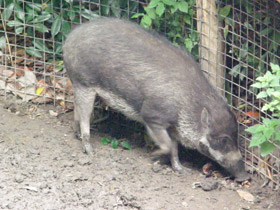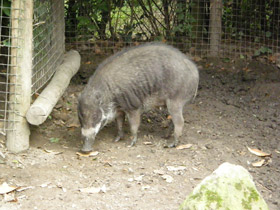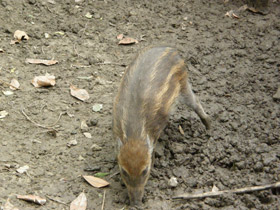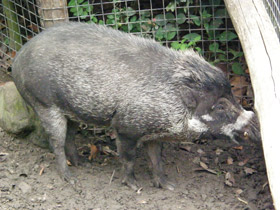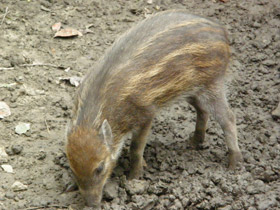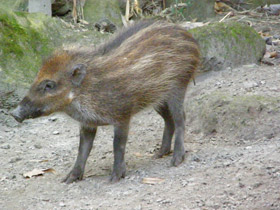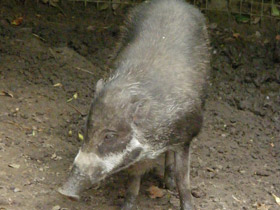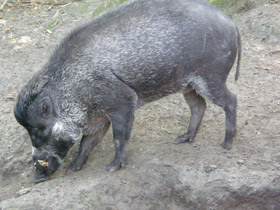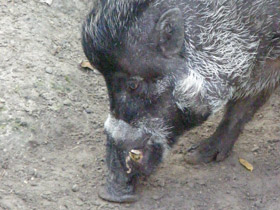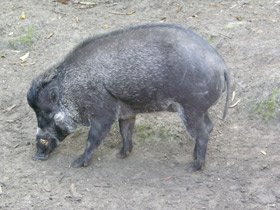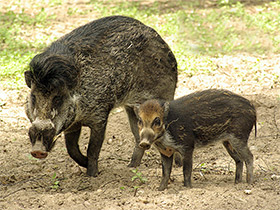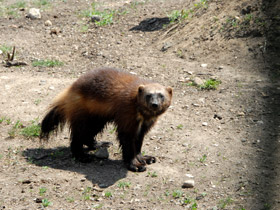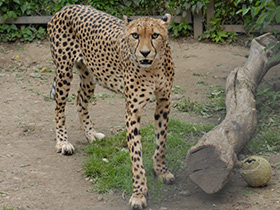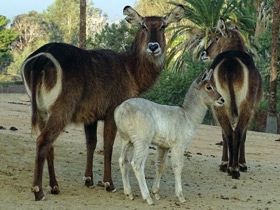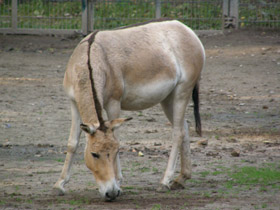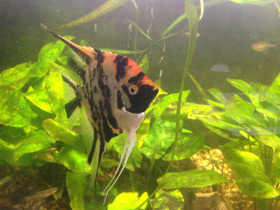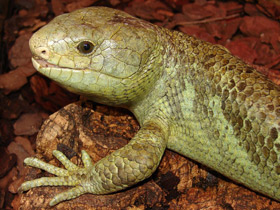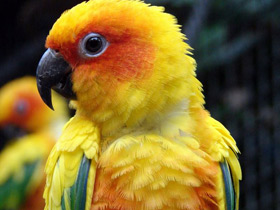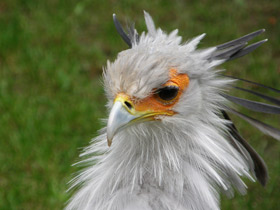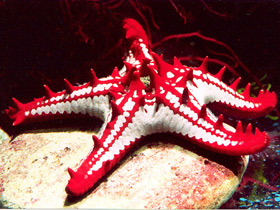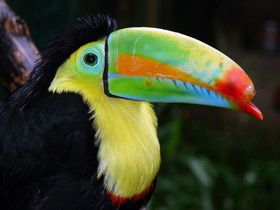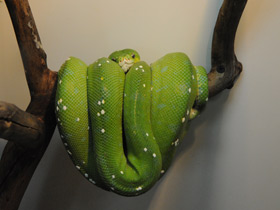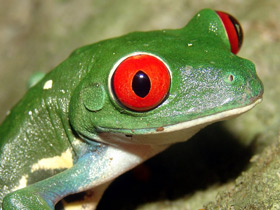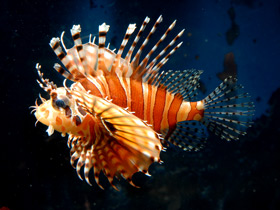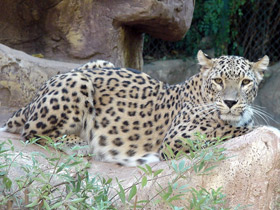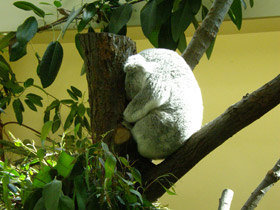Visayan warty pig Sus cebifrons
In the past, the Visayan warty pig was considered to be a subspecies of Philippine warty pig (Sus philippensis cebifrons), but in 1997, Sus cebifrons became widely recognized as a separate species. Previously the Visayan warty pigs ranged on six islands of the Philippines, but now fragmented populations of this species occur only on the West Visayan Islands (or Negros-Panay Faunal Region). The Visayan warty pigs live in the forests at elevations up to 1,600 meters over sea level. Uncontrolled hunting, logging operations and agricultural expansion resulted in dramatic decline of the Visayan warty pig populations (80% during the lives of the last three generations) and now the species is threatened by extinction. The Visayan warty pig was initially included in the category “vulnerable” of the IUCN Red List of Threatened Species in 1988; since 1996 it has been listed as “critically endangered”. Last hope for the survival of the Visayan warty pig is captive breeding programs with consequent reintroduction in the wild. The Visayan warty pigs are successfully bred at Rotterdam Zoo in the Netherlands, San Diego Zoo, the USA, and some other world zoos.
The Visayan warty pig is quite a large animal: its body length reaches one meter, and weight ranges from 20 to 40 kg, with some bigger males weighing up to 80 kg. These pigs have stocky body, strong legs, and slightly elongated head ending with a round nasal disc. The Visayan warty pigs live in small groups of 4 to 6 animals; they feed on plant roots, fallen fruit, and small animals that they find in the forest litter. The gestation period is approximately 118 days. Females usually give birth to 3 to 6 striped piglets. The mother nurses them for about three months; young Visayan warty pigs reach sexual maturity by the age of three years.

















